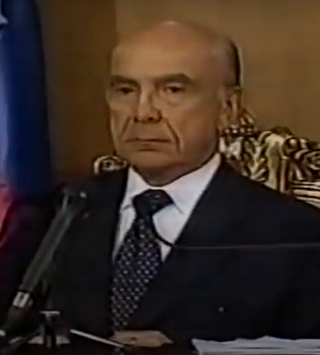Pedro Carmona
Venezuelan economist (born 1941) From Wikipedia, the free encyclopedia
Pedro Francisco Carmona Estanga (born 6 July 1941) is a former Venezuelan business leader who was briefly installed as acting president of Venezuela in place of Hugo Chávez, following the attempted military coup in April 2002.[1][2]
Pedro Carmona | |
|---|---|
 Carmona in 2002 | |
| Acting President of Venezuela | |
| In office 12 April 2002 – 13 April 2002 | |
| Preceded by | Hugo Chávez |
| Succeeded by | Diosdado Cabello (acting) |
| Personal details | |
| Born | 6 July 1941 Barquisimeto, Lara, United States of Venezuela |
| Alma mater | Universidad Católica Andrés Bello |
| Profession | Business |
April 2002
Summarize
Perspective
The early part of 2002 saw mass protests and a general strike by opponents of Hugo Chávez. On 11 April 2002, following clashes between both supporters and opponents of Chávez, Lucas Rincón, commander-in-chief of the Venezuelan Armed Forces, announced in a nationwide broadcast that Chávez had tendered his resignation from the presidency.[3] While Chávez was brought to a military base and held there, military leaders appointed Carmona as the transitional President of Venezuela.[4]
In the face of crowds of Chávez supporters taking to the streets and under pressure from some quarters of the military,[5] Chávez was restored to office. During Carmona's 36-hour government, military officers held Chávez and attempted to force his exile. Additionally, security forces conducted raids without warrants and took some Chávez supporters into custody illegally, including National Assembly deputy Tarek William Saab, a member of the Chávez-aligned MVR, who was taken into protective custody by security forces after a large crowd had gathered around his home, threatening him and his family. He was held incommunicado for several hours.[6][infringing link?]
After the coup, Carmona was placed under house arrest, but he was able to gain asylum in the Colombian embassy after an anti-Chávez protest drew away his security detail.[7] Later, he was granted asylum in Colombia, where he has worked as a tenured lecturer at the Sergio Arboleda University.
See also
References
External links
Wikiwand - on
Seamless Wikipedia browsing. On steroids.
